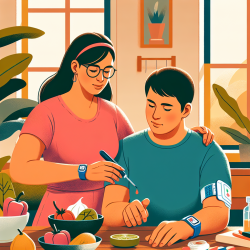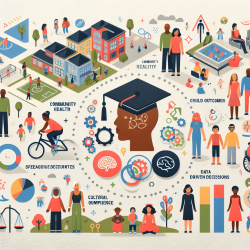Introduction
The COVID-19 pandemic has dramatically reshaped family dynamics worldwide, with Ghana being no exception. The study titled Parenting practices and family relationships during the COVID-19 lockdown in Ghana offers valuable insights into how these changes have affected parenting and family relationships. As practitioners dedicated to improving outcomes for children, understanding these dynamics is crucial for providing effective support.
Key Findings from the Research
The research conducted in Ghana highlights several key findings:
- Pre-COVID-19, both partner relationships and parenting practices were rated more positively compared to during the pandemic.
- The mean score for pre-COVID-19 relationship with partners was 36.86, significantly higher than the 35.32 score during the pandemic.
- Similarly, parenting scores dropped from 32.78 pre-COVID-19 to 31.40 during the pandemic.
- Participants who coped well with the pandemic reported better outcomes in both relationships and parenting.
Implications for Practitioners
For practitioners, these findings underscore the importance of fostering resilience and adaptive coping strategies in families. Here are some actionable steps:
- Promote Positive Communication: Encourage open and empathetic communication within families to strengthen bonds and reduce stress.
- Support Coping Mechanisms: Help families develop coping strategies tailored to their unique circumstances, enhancing their ability to manage stress and uncertainty.
- Focus on Responsive Parenting: Advocate for parenting styles that are adaptive and responsive to children's needs, promoting a nurturing environment.
- Encourage Community Support: Facilitate connections with community resources that can provide additional support and relief for families.
Encouraging Further Research
While this study provides valuable insights, it also highlights the need for further research to explore the nuances of family dynamics during crises. Practitioners are encouraged to engage in research initiatives that delve deeper into:
- The long-term effects of pandemic-induced stress on family relationships.
- The effectiveness of various coping strategies in different cultural contexts.
- Innovative interventions that can be implemented in online therapy settings.
Conclusion
The COVID-19 pandemic has undeniably challenged family structures, but it also presents an opportunity for growth and adaptation. By leveraging research insights and fostering resilience, practitioners can play a pivotal role in strengthening family bonds and improving outcomes for children.
To read the original research paper, please follow this link: Parenting practices and family relationships during the COVID-19 lockdown in Ghana.










